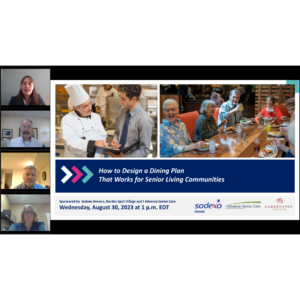AGS releases position statement on LGBT care
Those who care for older adults can lead efforts to ensure fair and equitable treatment for lesbian, gay, bisexual and transgender (LGBT) individuals subject to discrimination in healthcare and society, according to a new position statement from the American Geriatrics Society (AGS). The statement aims to address issues of prejudice due to age, sexual orientation, gender and other traits, and it also advocates policies for equal treatment, professional training on LGBT needs, deeper awareness of circumstances facing LGBT older adults and an enhanced research agenda.
“Like aging, sexual orientation, gender and other stigmatized personal characteristics can pose barriers to high-quality, patient-centered care. These unnecessary barriers need to be addressed head-on, particularly as the number of older adults requiring complex, sensitive care continues to grow,” Joseph Shega, MD, chair of the AGS Ethics Committee, said in a statement. “This AGS initiative is about more than equitable standards of care. It’s about supporting and sustaining a dialogue that can open quality healthcare to those who have been disenfranchised and keep it accessible for generations to come.”
The AGS statement encourages health providers and their institutions to:
- Create, evaluate and publicize policies for equal treatment of LGBT patients regardless of age;
- Implement LGBT health training programs for professionals who treat older individuals;
- Support high-quality research addressing LGBT health and discrimination; and
- Ensure that older LGBT adult care reflects the particular healthcare and social circumstances these patients face, from the role of partners and chosen family members in health decisions to the need for a supportive culture of respect.
The statement, “Care of Lesbian, Gay, Bisexual, and Transgender Older Adults,” was developed by the AGS Ethics Committee, with assistance from the AGS Ethnogeriatrics Committee and the AGS LGBT Special Interest Group. The AGS Executive Committee, as well as Services and Advocacy for GLBT Elders (SAGE) and Loree Cook-Daniels of the advocacy group FORGE, reviewed the final statement, which is available at no charge from the Journal of the American Geriatrics Society via GeriatricsCareOnline.org, the online portal for AGS products and publications. Click on the link in the first paragraph.
I Advance Senior Care is the industry-leading source for practical, in-depth, business-building, and resident care information for owners, executives, administrators, and directors of nursing at assisted living communities, skilled nursing facilities, post-acute facilities, and continuing care retirement communities. The I Advance Senior Care editorial team and industry experts provide market analysis, strategic direction, policy commentary, clinical best-practices, business management, and technology breakthroughs.
I Advance Senior Care is part of the Institute for the Advancement of Senior Care and published by Plain-English Health Care.
Related Articles
Topics: Clinical











